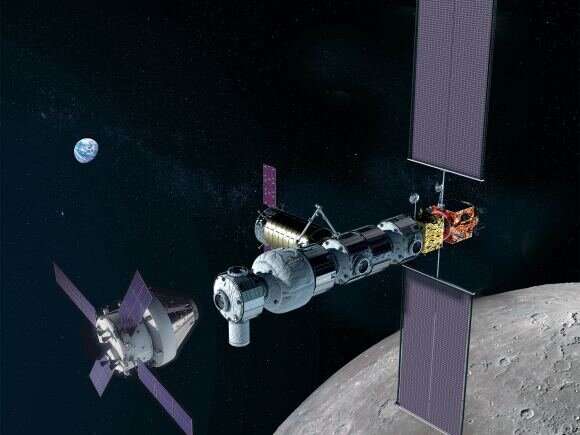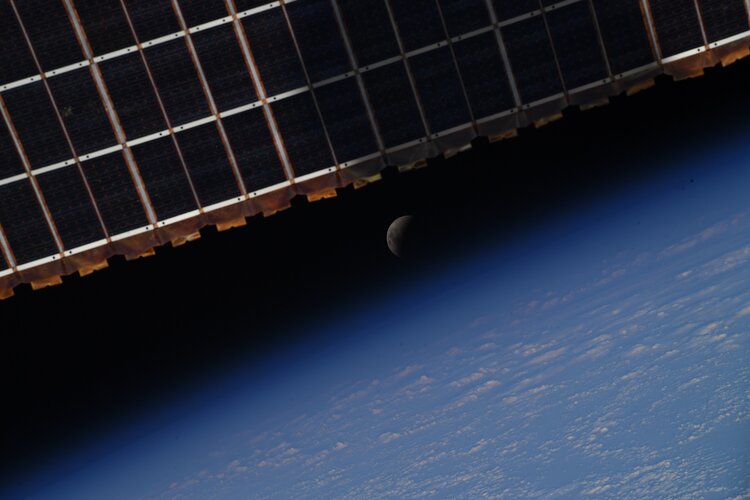
Copernical Team
Could people breathe the air on Mars
 Let's suppose you were an astronaut who just landed on the planet Mars. What would you need to survive?
For starters, here's a short list: Water, food, shelter - and oxygen.
Oxygen is in the air we breathe here on Earth. Plants and some kinds of bacteria provide it for us.
But oxygen is not the only gas in the Earth's atmosphere. It's not even the most abundant. In fact, only 2
Let's suppose you were an astronaut who just landed on the planet Mars. What would you need to survive?
For starters, here's a short list: Water, food, shelter - and oxygen.
Oxygen is in the air we breathe here on Earth. Plants and some kinds of bacteria provide it for us.
But oxygen is not the only gas in the Earth's atmosphere. It's not even the most abundant. In fact, only 2 What you need to know about NASA's Boeing Orbital Flight Test-2
 NASA and Boeing are taking another major step on the path to?regular?human spaceflight to the International Space Station using American rockets to launch spacecraft from American soil with the second uncrewed test flight of a commercial crew spacecraft.
NASA's Boeing Orbital Flight Test-2 (OFT-2) is targeting launch of the CST-100 Starliner spacecraft on a United Launch Alliance Atlas V r
NASA and Boeing are taking another major step on the path to?regular?human spaceflight to the International Space Station using American rockets to launch spacecraft from American soil with the second uncrewed test flight of a commercial crew spacecraft.
NASA's Boeing Orbital Flight Test-2 (OFT-2) is targeting launch of the CST-100 Starliner spacecraft on a United Launch Alliance Atlas V r ISRO tests large human rated solid rocket booster for the Gaganyaan program
 ISRO successfully completed the static test of a human-rated solid rocket booster (HS200) for the Gaganyaan Program at Satish Dhawan Space Centre (SDSC), Sriharikota, Andhra Pradesh on May 13, 2022, at 7:20 AM local time. HS200 rocket booster is the human-rated version of the well-proven S200 rocket booster of GSLV Mk III satellite launch vehicle, popularly known as LVM3.
The successful co
ISRO successfully completed the static test of a human-rated solid rocket booster (HS200) for the Gaganyaan Program at Satish Dhawan Space Centre (SDSC), Sriharikota, Andhra Pradesh on May 13, 2022, at 7:20 AM local time. HS200 rocket booster is the human-rated version of the well-proven S200 rocket booster of GSLV Mk III satellite launch vehicle, popularly known as LVM3.
The successful co Dawn Aerospace wins Blue Canyon's X-SAT Saturn-Class propulsion business
 Dawn Aerospace, a Netherlands-, New Zealand-and U.S.-based space transportation company, has been selected by Blue Canyon Technologies to provide turnkey chemical propulsion systems for the X-SAT Saturn satellite bus. Dawn will supply thrusters, tanks, control electronics, and full-service support in logistics and propellant loading for the ESPA Grande-class satellite.
Blue Canyon Technolo
Dawn Aerospace, a Netherlands-, New Zealand-and U.S.-based space transportation company, has been selected by Blue Canyon Technologies to provide turnkey chemical propulsion systems for the X-SAT Saturn satellite bus. Dawn will supply thrusters, tanks, control electronics, and full-service support in logistics and propellant loading for the ESPA Grande-class satellite.
Blue Canyon Technolo Inmarsat welcomes Netherlands 3.5ghz Advisory Committee report
 Commenting on the report to the Dutch Ministry of Economic Affairs and Climate from the Advisory Committee on 3.5GHz Communications Jason Smith, Inmarsat Chief Operating Officer, said: "Inmarsat is pleased to read the recommendations from the Advisory Committee to the Ministry on the National Frequency Plan and the focus on the necessary protection of essential safety services provided via satel
Commenting on the report to the Dutch Ministry of Economic Affairs and Climate from the Advisory Committee on 3.5GHz Communications Jason Smith, Inmarsat Chief Operating Officer, said: "Inmarsat is pleased to read the recommendations from the Advisory Committee to the Ministry on the National Frequency Plan and the focus on the necessary protection of essential safety services provided via satel Gilmour Space completes full duration test fire of new Phoenix rocket engine
 An Australian launch services company known for its orbital-class hybrid rocket technology, Gilmour Space Technologies, has unveiled a new 3D printed liquid rocket engine that will power the third stage of its Eris rocket to orbit.
The company has shared a video of a successful 190-second Mission Duty Cycle (or mission duration) test fire of its new regeneratively-cooled liquid rocket engi
An Australian launch services company known for its orbital-class hybrid rocket technology, Gilmour Space Technologies, has unveiled a new 3D printed liquid rocket engine that will power the third stage of its Eris rocket to orbit.
The company has shared a video of a successful 190-second Mission Duty Cycle (or mission duration) test fire of its new regeneratively-cooled liquid rocket engi Lunar eclipse thrills stargazers in the Americas

A total lunar eclipse provided a spectacular celestial show as it unfolded Sunday night into early Monday in the Americas.
The eastern half of North America and all of Central and South America were prime locations to see the eclipse, while partial stages were visible across Africa, Europe and the Middle East.
Among those watching the eclipse where skies were clear were residents of Buenos Aires, Argentina, who bundled up in the chilly night and relaxed on blankets in a park to look at the event. In Caracas, Venezuela, some people brought laser pointers as a crowd gathered to watch.
A CubeSat is flying to the moon to make sure Lunar Gateway's orbit is stable

Before this decade is over, NASA will send astronauts to the moon for the first time since the Apollo Era. As part of the Artemis Program, NASA also plans to establish the infrastructure that will allow for a "sustained program of lunar exploration." A key part of this is the Lunar Gateway, an orbiting space station that will facilitate regular trips to and from the lunar surface. In addition to being a docking point for ships going to and from Earth, the station will also allow for long-duration missions to Mars.
The Gateway will have what is known in orbital mechanics as a "near rectilinear halo orbit" (NRHO), meaning it will orbit the moon from pole to pole. To test the long-term stability of this orbit, NASA will be sending the Cislunar Autonomous Positioning System Technology Operations and Navigation Experiment (CAPSTONE) to the moon by the end of May.
Peek-a-boo Moon
 Image:
Lunar eclipse captured by Samantha Cristoforetti aboard the International Space Station
Image:
Lunar eclipse captured by Samantha Cristoforetti aboard the International Space Station Humans have big plans for mining in space, but there are many things holding us back

Like Earth, planetary bodies such as the moon, Mars, asteroids and comets contain substantial deposits of valuable resources. This has caught the attention of both researchers and industry, with hopes of one day mining them to support a space economy.
But setting up any kind of off-Earth mining industry will be no small feat. Let's look at what we're up against.
In-situ resource utilization
When you think of off-Earth mining, you might imagine extracting materials from various bodies in space and bringing them back to Earth. But this is unlikely to be the first commercially viable example.
If we wanted to establish a permanent human presence on the moon, as NASA has proposed, we would need to resupply astronauts living there. Resources such as water can only be recycled to an extent.
At the same time, resources are extremely expensive to launch from Earth. As of 2018, it cost about A$3,645 to launch one kilogram of material into low Earth orbit, and more to launch it higher, or onto the moon.
